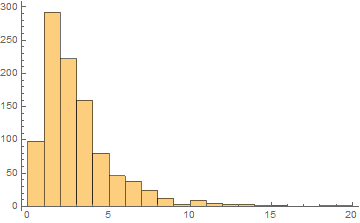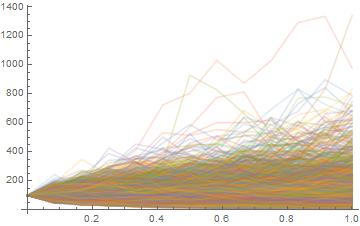I'm new to Mathematica programming, so forgive my rather unsophisticated question.
I need to simulate 5000 "walks" of a process value (of a stock) that starts from its current value, at t0, and ends in T (expiration date of an option). The stocks follow a lognormal process. The process in question must have mean (r - [Sigma]^2/2) and standard deviation ([Sigma] Sqrt[T]). After that, I need to calculate the mean of the 5000 final values that, probably, will correspond to the expected value (E^Q) [Subscript[S, T]]. All of this to find the price of a call option using:
Subscript[C, t] = E^(-r (T - t)) ((E^Q) [Subscript[S, T]] - K)
and find the value in t of my call option.
In theory I know all of this but practically can not do anything. Can someone help me?



FinancialDerivative[{"European", "Call"}, {"StrikePrice" -> 50.00, "Expiration" -> 1}, {"InterestRate" -> 0.1, "Volatility" -> 0.5, "CurrentPrice" -> 50, "Dividend" -> 0.05}]. I think that will do the full Black-Scholes equation for you and give you better results. $\endgroup$